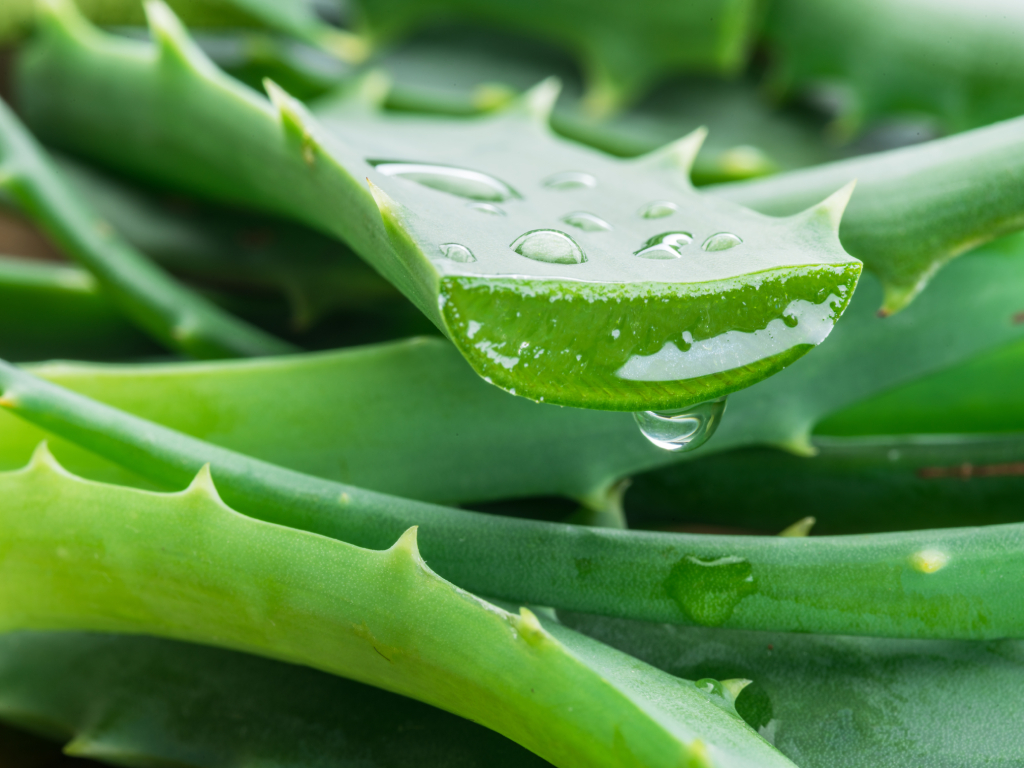
Aloe vera: uses, benefits and concerns
Summer is coming, that time of the year when the skin is more exposed to sunlight. The shops are packed with products to prevent and soothe sunburn, like lotions and protective gels, many of them containing aloe vera. In this article we will investigate the properties of this plant, its uses and recent concerns.
Traditional uses of aloe vera
Aloe vera, Aloe vera (L.) Burm.f., is a succulent plant that prefers hot and dry climates and grows mainly on rocky soil. It is considered native to the Arabian Peninsula, but today it is also cultivated worldwide as an ornamental plant.
The use of aloe vera in phytotherapy is very ancient, in particular against skin disorders. It was known by the Egyptians, who used it in preparations for embalming the dead and in hygiene and body care, as testified by the Ebers papyrus, dating to 16th century BC. It is also found in the De Materia Medica by Dioscorides and in the Naturalis Historia by Pliny the Elder, two classical texts considered the foundations of botanical knowledge.
However, the systematic study of this plant only started in the middle of last century with the Texan pharmacist Bill Coats, who developed a system to stabilize the gel obtained from the pulp of aloe leaves, simplifying its use in an increasingly wide range of products.
Aloe vera products can be divided into two categories, with different chemical constituents and properties:
- products made with aloe vera gel (from deep incision of the leaves) used with soothing, anti-inflammatory action and for external use;
- products made with aloe vera juice (from superficial incision of the leaves) with laxative activity. These extracts have recently been banned from the market due to their anthraquinone content, as explained later in the article.
Aloe vera gel: cosmetic properties and more
By deep incision of the sharp leaves of aloe vera, we obtain a gel rich in mucopolysaccharides and lipids. Used topically, this gel has a healing, anti-inflammatory, antimicrobial and anesthetic action. It is also used in the treatment of skin diseases such as psoriasis and dermatitis.
As for its use in sunburn remedies, aloe vera gel has shown a protective effect against skin damage caused by radiation. After the application of the gel, the skin generates a greater amount of metallothionein, an antioxidant protein that destroys hydroxyl radicals.
In cosmetics, aloe vera is commonly found in products with moisturizing and anti-aging functions, to improve skin elasticity and stimulate collagen production. It is rich in minerals such as zinc, known for its astringent and anti-acne properties.
The gel can also be transformed into a powder, to be used with an emollient and soothing action on the digestive system, with depurative functions for the organism and to promote wellbeing of the throat.
The ban on aloe vera products with laxative activity
Let's now move on to products containing aloe vera juice, traditionally used to help the regularity of intestinal transit. Their laxative properties derive from compounds called anthraquinones, which are found in the juice obtained from the superficial incision of the leaves.
As anticipated, products made from aloe juice have recently been banned from the market. On 8th April 2021, a new regulation came into force throughout the EU that forbids the use of preparations based on Aloe leaves containing hydroxyanthracene derivatives. The ban also has put under observation other plant species containing this class of active ingredients in food supplements.
The concerns are related to hydroxyanthracene derivatives, including anthraquinones, substances naturally found in many plants, such as rhubarb, senna, frangula, cascara, various species of aloe and, to a lesser extent, also in vegetables like beans, peas, lettuce and cabbage. The ban is related to their possible genotoxic and carcinogenic action.
Already in 2013, EFSA had advised against the consumption in high doses of hydroxyanthracene derivatives for safety reasons, while recognizing their benefits for the intestinal function.
The ban only affects supplements with laxative effects, while there is no limitation for products based on aloe vera gel, because they are naturally free of anthraquinones.
Luckily, this summer aloe vera will still help us protect our skin from sunburn and many other annoying ailments. And, perhaps, this age-old remedy has a few more properties to reveal...